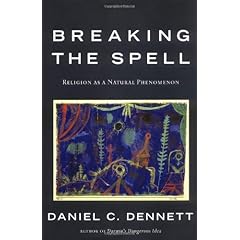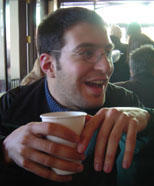Why rant when the blogosphere can rant for you

This Sunday in the NY Times Book review section, I read a horrible review of Daniel Dennett's book Breaking the Spell: Religion as a Natural Phenomenon. I wanted to write up a blog entry or a letter to the editor, but I had too much stuff to do.
I haven't read it, but I've read several interviews (one in the NY Times Saturday Magazine) about the book. Dennett's has two proposals ... first that academia should study the reason why humans have religion - as in the biologically/evolutionarily based reason why we've developed religion, and second, does religion confer any benefits to individuals or to society.
In other words, did the belief (or predisposition) in religion offer some benefit to our ancestors? And today, is religion making you happier, healthy ... ?
Instead of a critique, the review by Leon Wieseltier offers an incoherent analysis of the whole endeavor of academic research. In addition, the review is laced with personal attacks, as in
In his own opinion, Dennett is a hero.
...
Dennett is the sort of rationalist who gives reason a bad name; and in a new era of American obscurantism, this is not helpful.
Dennett flatters himself that he is Hume's heir.
...
In the end, his repudiation of religion is a repudiation of philosophy, which is also an affair of belief in belief. What this shallow and self-congratulatory book establishes most conclusively is that there are many spells that need to be broken.
And there's more ... Dennett has "naturalist superstitions" and spreads "Scientism". Wieseltier attacks Dennett's reasoning by reasoning that reason can't be used to study religion. What the bloody hell??? In other words, please don't ask rational questions.
Do I need to write more? Yesterday, I was amazed by all the fuss generated in various blogs on the subject of the book. So instead of repeating what they said, go and read them.
Brian Leiter
Silly Humans
Pharyngula
Stumblings in the dark
The Little Green Blog
Shotgunfreude
The Secular Outpost
Science and Politics


<< Home